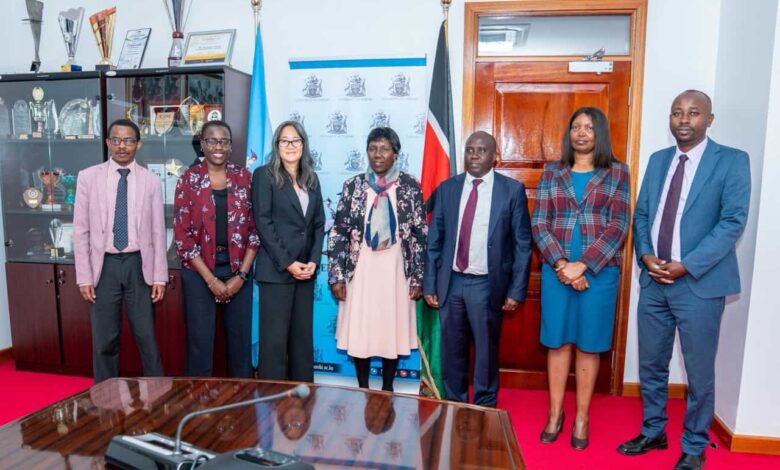
Kenya is rapidly establishing itself as a formidable player in the Global Business Services (GBS) market, a sector that encompasses the increasingly vital Business Process Outsourcing (BPO) industry. According to Sama AI CEO Wendy Gonzalez, Kenya is now attracting more than $500 million USD in annual Global Business Services revenues, positioning the country as a leading destination for global businesses seeking high-quality outsourcing solutions. This growth is a testament to Kenya’s strategic investments in digital skills and infrastructure, enabling it to compete effectively in a highly competitive global market.
Kenya’s Strategic Position in the Global Business Services Market
Kenya’s ascent in the Global Business Services market is remarkable, with Business Process Outsourcing playing a critical role in this growth. Gonzalez disclosed that over half of Kenya’s Global Business Services revenues, approximately $254 million USD, are projected to come from Business Process Outsourcing in 2024. This includes contributions from AI supply chain providers like Sama, which have been pivotal in driving Kenya’s reputation as an attractive investment destination.
During a public lecture on Generative Artificial Intelligence at the University of Nairobi, Gonzalez highlighted Kenya’s competitive edge in the Global Business Services market. The market, which reached $1 trillion USD in revenues globally last year, includes other African nations such as South Africa, Egypt, Tunisia, and Morocco, which have also secured significant market shares. However, Kenya leads among emerging Global Business Services destinations, outperforming countries like Senegal, Nigeria, Mauritius, Zimbabwe, Rwanda, and Ghana. Gonzalez projected that Kenya’s current growth trajectory could see it becoming the leading provider of digital work opportunities, with a positive ripple effect on the local economy.
“Studies have shown that digital work increases formal employment opportunities and is the fastest-growing sector. Kenya has made very good headway amidst stiff competition and must avoid complacency by guarding its market positioning and providing an enabling environment to further deepen the Global Business Services market opportunity,” said Gonzalez.
The Role of Human Capital in Kenya’s Success
Kenya’s success in the Global Business Services market is largely attributed to the quality of its human capital. The country boasts a workforce that is versatile and capable of serving various market segments, including the rapidly expanding field of Generative Artificial Intelligence. Gonzalez emphasized that this success is due to Kenya’s advancements in digital training and academic progress, which have equipped the workforce with the necessary skills to excel in these areas.
However, Gonzalez warned against complacency. Several countries are striving to edge Kenya out of its growth trajectory, making it crucial for the country to maintain its competitive edge. To secure its market positioning, Kenya must continue to focus on providing an enabling environment that supports the growth of the Global Business Services market.
The Future of Digital Skills in Kenya
Looking ahead, the demand for digital skills in Kenya is set to increase dramatically. Gonzalez estimated that by 2030, more than 50-55% of jobs in Kenya will require digital skills. However, she pointed out significant gaps in both basic and advanced digital skills, particularly in rural areas and among women. To address these gaps, Sama has partnered with the University of Nairobi to advance Artificial Intelligence skills in one of the first collaborations of this kind in Kenya. This partnership is designed to help bridge the skills gap, ensuring that Kenya’s workforce remains competitive in the global market.
Government and Academic Support for Artificial Intelligence Development
The lecture also featured insights from key government and academic leaders, emphasizing the importance of Artificial Intelligence in Kenya’s digital future. Principal Secretary for ICT and the Digital Economy, Eng. John Tanui, stressed that Artificial Intelligence is no longer science fiction but a present reality that Kenya must fully embrace to prepare for the future. He noted that Generative Artificial Intelligence alone could add between $2.6 and $4.4 trillion USD annually to the global economy, and Kenya is well-positioned to benefit from this growth.
Tanui highlighted the government’s commitment to establishing policies and frameworks that foster innovation while protecting the rights and interests of all citizens. He emphasized the importance of ethical Artificial Intelligence development and usage, noting that 65% of organizations are already integrating Generative Artificial Intelligence into their operations. “As we embrace this digital future, partnerships and education in Science, Technology, Engineering, and Mathematics (STEM) are key to preparing our workforce for the opportunities ahead,” he added.
Prof. Margaret Hutchinson, the Acting Vice Chancellor of the University of Nairobi, also spoke at the event, underscoring the university’s pivotal role in equipping students with the skills necessary to navigate the digital economy. She emphasized that the University of Nairobi is committed to bridging the gap between academia and industry, ensuring that graduates are not only job-ready but also future-ready.
Sama and University of Nairobi Partnership: A Step Towards Artificial Intelligence Leadership
The partnership between Sama and the University of Nairobi is a significant step towards advancing Kenya’s capabilities in Generative Artificial Intelligence. This collaboration will provide part-time employment opportunities for university faculty and students, offering them practical experience in Artificial Intelligence technologies. This initiative aligns with the broader goal of bridging the digital divide and positioning Kenya as a global leader in the Artificial Intelligence value chain.
Sama’s commitment to expanding opportunities for underserved individuals through the digital economy is further demonstrated by its status as a certified B-Corp. The company has helped more than 65,000 people lift themselves out of poverty through its training and employment programs. An MIT-led Randomized Controlled Trial has validated the effectiveness of Sama’s programs, reinforcing its impact on the communities it serves.
Conclusion: Kenya’s Path to Digital Leadership
Kenya’s rise in the Global Business Services market is a clear indication of the country’s potential to become a digital powerhouse. The combination of a skilled workforce, strategic investments in digital education, and strong government support has positioned Kenya as a leading destination for Business Process Outsourcing and Artificial Intelligence services. However, as Gonzalez and other leaders have pointed out, sustaining this growth requires vigilance, continued investment in digital skills, and the development of ethical frameworks for Artificial Intelligence.
As Kenya continues to build its market share in the Global Business Services sector, it is essential to maintain the momentum by addressing skills gaps, particularly in rural areas and among women, and by fostering an environment that supports innovation. The partnership between Sama and the University of Nairobi is a promising step in this direction, offering a model for how collaboration between industry and academia can drive digital transformation.
With the right strategies and investments, Kenya is poised to not only lead in the Global Business Services market but also to play a significant role in the global Artificial Intelligence value chain, driving economic growth and creating opportunities for its citizens in the digital age.
Featured Photo Caption: SAMA AI Global CEO Ms Wendy Gonzalez with the University of Nairobi Ag. Vice Chancellor Prof Margaret Hutchinson, State Department for ICT and Digital Economy Principal Secretary Eng John Tanui and the Dean, Faculty of Science and Technology, Prof Leonidah Kerubo with academic staff from the Department of Computer Science during a courtesy call to the VC to discuss the ongoing partnership between the two institutions.





